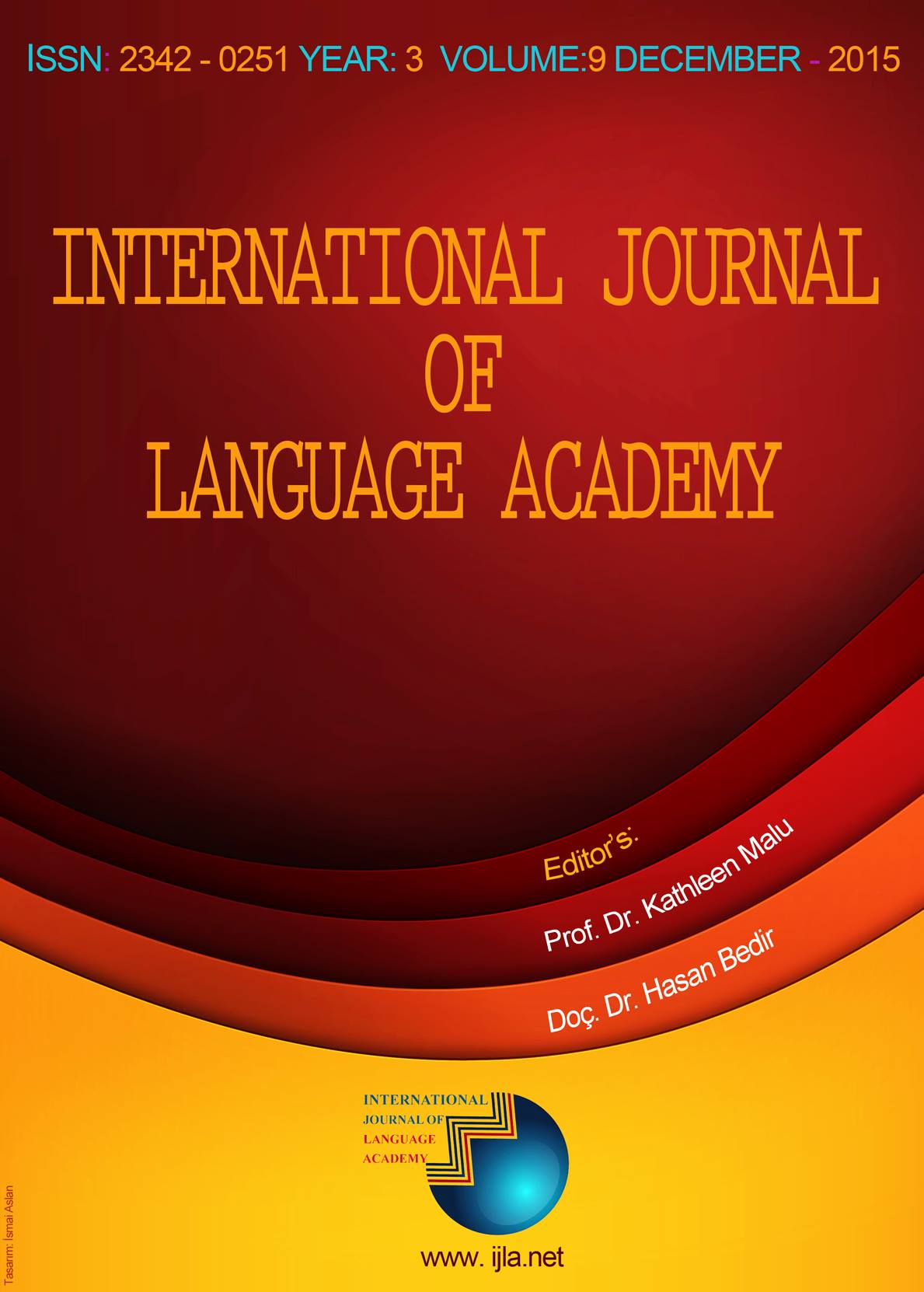Author :
Abstract
Fantastik anlatının, bir anlatı türü olarak ortaya çıkışı “gerçeklik” ölçütüne göre oluşmuştur. Türlerin ortaya çıkışı, Todorov’un fantastik türün özelliklerini ortaya koyduğu çalışmasında da belirttiği gibi öncelikle başka türlerin varlığını gerektirir. Fantastik türün de ortaya çıkışı bu bağlamda, gerçeklik ölçütünü esas alan diğer türlerin varlığına ve bu türlerle arasında oluşan karşıtlığa bağlanır. Ancak fantastik türü diğer türlerden farklı kılan durum bu türün okurun bilincindeki karşılığıdır. Okur, metin ile kurduğu kipsel ilişkiyle metni yeniden üretir. Kipsel ilişkiyle sözü edilen şey okurun anlatı kişilerinden biriyle özdeşleşip anlatıya yönelik bir tavır geliştirmesidir. Bu bakış açısıyla okur türün oluşumunda önemli bir öğeye dönüşmektedir. Fantastiğin türsel özelliğinin ortaya çıkışında okur ve okurun “gerçeklik” algısına göre yapılan açıklamalar önemli yer tutmaktadır. Bu bakımdan okurun gerçeklik algısı önemlidir. Okurun gerçeklik algısı, psikolojik açıdan bilinç ve algılarla sınırlanmış durumdadır. Burada bilinç ve sınır kavramları, göstergebilim kipliklerinden /bilme/ kipliği ve /üst bilme/ kipliği ile incelenmektedir. Bu kiplikler ve gerçeklik ilişkisi okurun diğer türlerle olan ilişkisini de belirler. Bu çalışmada fantastik anlatı türünün özelliklerine, anlatı yapısındaki durumlara değinilmeyecektir. Bu çalışmanın temel araştırma konusu, anlatı kişilerinin, anlatıcının ve özellikle de okuyucunun göstergebilim kipliklerinden inanma, bilme kipliklerine göre incelenmesidir. Okurun fantastik anlatı karşısında gerçeklikten sıyrılarak yeni bir gerçek yaratma süreci incelenecektir. Çalışma okuyucuyu ikna edebilen anlatıcı üzerinde de ikna etme kipliğini incelemeyi amaçlamaktadır.
Keywords
Abstract
Emergence of fantastic narration as a narrative genre has been composed as its “reality” criteria. According to Todorov’s study which shows the characteristics of the fantastic genre, emergence of genre requires the presence of other genres. The emergence of the fantastic genre is also based on the presence of other genres that take the reality criteria and antagonism formed between these genres. However the circumstance which makes the fantastic genre different from other genres is the contradiction in reader’s conscious. Reader reproduces the text with modal relations. Modal relation means that reader develops an attitude towards the narration by identifying herself with one of the narrative characters. Readers become an important factor in genre’s emergence with this perspective. Descriptions which are made regarding reader and reader’s “reality” perception have an important role in the fantastical genre’s characteristics. Reader’s perception is important in this regard. Reader’s reality perception is limited psychologically by conscious and perceptions. In this paper, conscious and perceptions concepts are analyzed with epistemic and meta-epistemic modalities from semiotic modality. These modality and the relation of reality indicates reader’s relation to the other genres as well. In this study, fantastic narration characteristics and cases in the narrative structure will not be mentioned. The main topic of this study is to analyze narrated persons, narrator and especially according to the the epistemic and belief modality of semiotic modality. Reader’s detachment from the reality phase in order to create a new reality will be analyzed. The study aims to analyze the persuation modality on narrative which can persuade the reader.
Keywords
- Aslan, P. (2010). Osmanlı Türk modernleşmesinin gölgesinde varla yok arası bir tür: Fantastik roman (1876-1960). Boğaziçi Üniversitesi. Doktora Tezi.
- Baudou, J. (2005) Bilim-kurgu. Çev. İpek Bülbüloğlu. Ankara: Dost Kitabevi Yayınları.
- Eco, U. (1995) Anlatı ormanlarında altı gezinti. Çev. Kemal Atakay. İstanbul: Can
- Greimas, A. J. ve Courtes J. (1979). Sémiotique. Dictionnaire Raisonné de la Théorie du Langage. Cilt. I. Paris: Hachette-Université.
- Günay, V.D. (2007). Metin bilgisi. 3. Baskı. İstanbul: Multilingual Yayınları.
- Hançerlioğlu, O.(1976). Felsefe ansiklopedisi kavramlar ve akımlar. Cilt II. İstanbul: Remzi Kitabevi.
- May, R. (2008). Yaratma cesareti. Çev. Alper Oysal. İstanbul: Metis yayınları.
- Olsen, L.(2004) “Prelude: Nameless Things and Thingless Name”. Fantastic Literature: A Critical Reader. London: Westport, Connecticut.
- Toyman, Y. Ö. (2006). Nazlı Eray’ın roman dünyasında düşsü ve büyülü gerçekliğin kurgusu ile fantastik unsurlar. Isparta: Süleyman Demirel Üniversitesi Sosyal Bilimler Enstitüsü. Yayınlanmamış Yüksel Lisans Tezi.
- Todorov, T. (2004). Fantastik: Edebi türe yapısal bir yaklaşım. Çev. Nedret Tanyolaç Öztokat. İstanbul: Metis Yayınları.
- Uzdu Yıldız, F.(2012). Göstergebilim kiplikleri açısından anlatı kişilerinin incelenmesi. İzmir: Ege Üniversitesi Sosyal Bilimler Enstitüsü. Yayınlanmamış Doktora Tezi.





